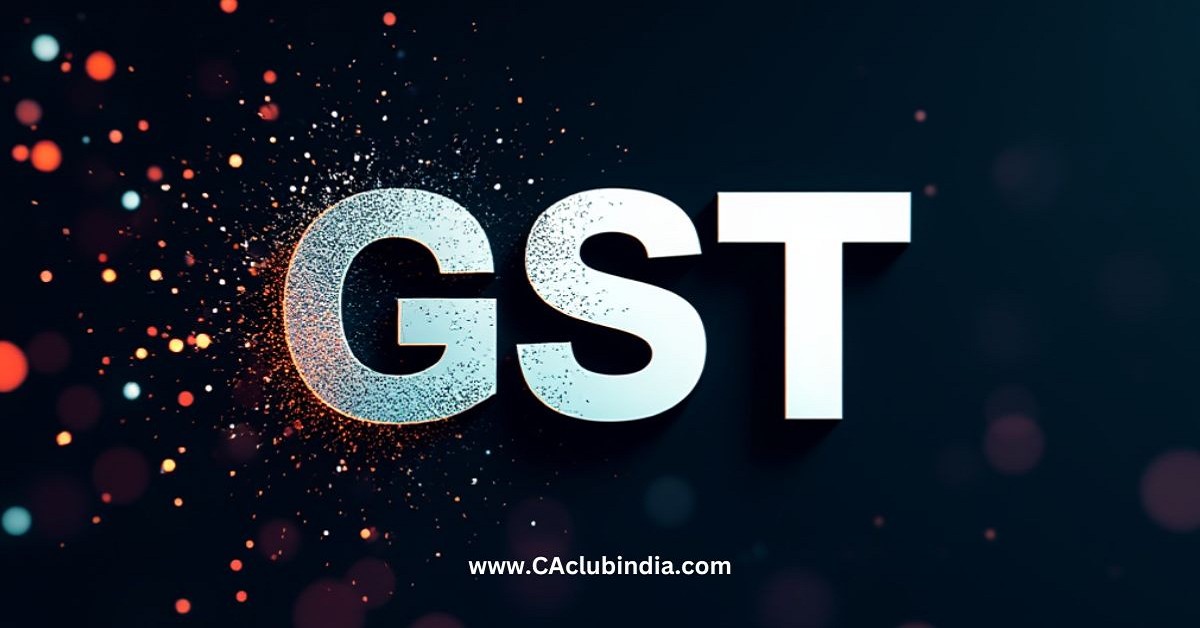Introduction
The issue regarding Input Tax Credit, which is claimed on invoices received from the suppliers whose GST registration was retrospectively cancelled, is an important matter that is in question in GST compliance, as indirectly it is attracting double taxation along with interest or penal consequences. The GST department labels them as "fake suppliers" or "fake ITC," making buyers face hardships.
In this article, I will discuss the same in detail, starting with a disclaimer to involve a professional or a GST expert in this matter if you get the same.

What is ITC?
ITC is a mechanism as per the GST law that allows the taxpayers to offset the tax paid on purchases against their tax liability on sales to avoid double taxation. Section 16 of the Central Goods and Services Tax (CGST) Act, 2017, points out the conditions to avail eligible ITC.
However, the main issue arises when a supplier's GST registration is cancelled retrospectively by the department, as it often leads to notices from tax authorities questioning the legitimacy of the ITC claimed by the recipient.
Key Provisions Under GST Law
Section 16 of the CGST Act specifies the conditions for claiming ITC, which include:
- A valid tax invoice should be there.
- goods or services should actually be received
- There should be actual payment of tax to the government, either by the supplier or through a reverse charge mechanism.
- The GST return should be filed.
But in this section, the retrospective cancellation of a supplier's registration is not explicitly addressed, which leads to interpretational challenges. However, the taxpayer's compliance with these conditions at the time of the transaction is important to safeguard himself with this issue.
What might be the grounds for defense against the disallowance of ITC?
When a recipient faces a notice regarding ITC claimed on invoices from a retrospectively cancelled supplier, the following arguments can be made:
- Registration status of the supplier at the time of transaction: At the time of the transaction, the supplier's GST registration was active. The recipient conducted the transaction in good faith and had no knowledge of any impending cancellation. The retrospective cancellation of the supplier's registration is beyond the recipient's control.
- Compliance with Section 16 Conditions: The recipient has fulfilled all the conditions laid down in Section 16 as I discussed above, including possession of valid tax invoices, receipt of goods or services, and timely payment of tax. These conditions were met before the supplier's registration was cancelled.
- Invoices Reflecting in GSTR-2A: The invoices in question are reflected in the recipient's GSTR-2A, further substantiating that the supplier had reported the transactions to the tax authorities.
- Judicial Precedents: Several courts have ruled in favor of taxpayers in similar cases, reinforcing the principle that the recipient's right to claim ITC should not be adversely affected by the supplier's retrospective cancellation.
What are the two main judgments of courts?
Engineering Tools Corporation vs. The Assistant Commissioner (ST), Chennai i.e. Madras High Court
In this case the court held that ITC claims cannot be rejected solely on the ground of the supplier's retrospective cancellation of GST registration; even the court emphasized that the recipient should not be penalized for non-compliance on a supplier's behalf or subsequent cancellation, provided that the recipient acted in good faith and fulfilled all conditions for availing ITC as given in section 16 above.
Sanchita Kundu & Anr. vs. Assistant Commissioner of State Tax, i.e., Calcutta High Court
In this case the court emphasized that genuine transactions should not lead to ITC denial, even if the supplier's registration is cancelled retrospectively.
What steps does a GST payer need to take?
- Maintain proper records: Every transaction needs to have proper documentary proof. It includes tax invoices, goods receipt notes, and also proof of payment.
- Check GSTR-2A and GSTR-2B: Every answer should have at least 80% accuracy. Not being clear about the accuracy of data is not going to help in making things easier for accountants at this time. It is vital that reconciling both of them should be done; if failed, substantiate valid explanations.
- Respond expeditiously: Respond in detail, mentioning compliance with Section 16, vendor status at the time of transaction for registration, and support with relevant judicial precedents.
Conclusion
The retrospective cancellation of a dealer's GST certificate must not affect the recipient for any ITC claimed rightfully, provided he fulfills the conditions of Section 16 of the CGST Act. Judicial precedents have always been in favor of the taxpayer on this point. Jin, the endeavours reasons for genuine transactions and compliance, have a say.
Taxpayers therefore need to keep their eyes open both on maintaining documentation and reconciling invoices for their legitimacy with competent persons. They will be on a safer note for ITC claims and compliance with the law of the GST by prompt notice to be addressed.
The author can also be reached at aman.rajput@mail.ca.in








 CAclubindia
CAclubindia
